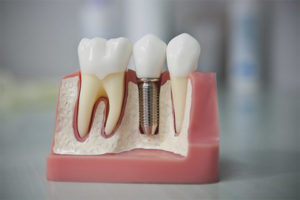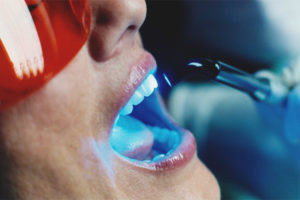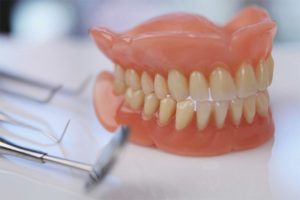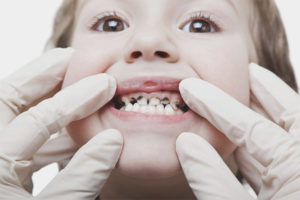The content of the article
Toothache is one of the most unpleasant phenomena that can make our life black and white. When the pain becomes acute, impulsive, the person cannot think of anything but the sore tooth. And if at the time of exacerbation it is not possible to go to the dentist, you can reduce or temporarily relieve the pain yourself.
Causes of Toothache
If something hurts - it means that there is a reason, and it must be solved. Toothache can be dull and aching, and can throb, giving to temples and causing headache. The reason is the sensitivity of the dental nerve to the change in food temperature, inflammation, infection, and in general damage to the dental nerve.
Consider the most common reasons:
- Toothache after tooth extraction. As a rule, it is natural, and after a day or two it calms down. Indeed, after the removal of the tooth, an open wound remains, which should gradually heal.In no case can not climb there with foreign objects or tongue, you need to eat on the other side, so as not to interfere with the wound to heal, and do not introduce infection. But if the pain does not subside, and over time does not pass - consult a doctor, you may have complications.
- Caries. The pain occurs if the disease is neglected, the center of destruction has reached deep into the tooth and touched the dental nerve. Under these conditions, it is possible to reduce pain for a while, but a visit to the dentist is necessary.
- Periodontitis The pain occurs when pockets appear near the tooth, and bleeding appears at the same time. Without the intervention of the dentist, the disease cannot be cured at this stage.
- Incorrect sealing. With improper tooth treatment, the disease continues to develop, reaching the depth of the tooth and touching the nerve. Only one way out - the dentist must remove the filling, clean the tooth and seal it again.
In any case, with a strong permanent toothache, you should contact your dentist to find out the cause and eliminate it.
Methods to calm the dental nerve at home
With the unexpected appearance of toothache, you can calm her at home.In addition to taking a painkiller, you can make a rinse solution or herbal decoction:
- The simplest solution that does not require any special tools and is always at home is soda. A glass of warm boiled water is enough 1 teaspoon of soda. It is important to stir it well, so that a minimum of sediment remains. Such a remedy well disinfects and soothes the pain: soda is known for its antibacterial properties, and it also softens tissues in the gums and relaxes the nerve, which helps to reduce pain spasms. It is recommended to add a couple of drops of iodine to the solution, this will only improve the positive effect.
- Hydrogen peroxide is diluted in proportions of 1: 2 with water. Means well disinfects and reduces inflammation.
- Decoction of garlic with salt or a compress of pounded garlic and salt. Compress is done like this: in a small piece of gauze folded gruel of mashed salt and garlic and applied to the diseased part of the gums. Garlic perfectly kills bacteria and relieves pain.
- An infusion of onion peel acts as a pain reducing and prophylactic agent against caries: there are 500 ml of boiling water per three spoons of a plant, it is brought to a boil and boiled up to 10 minutes. Then the tool is filtered and infused for about 8 hours.
- Clove oil soothes pain well: a few drops of oil are applied to the fleece and applied to the diseased part of the gum.
- Any strong unsweetened alcohol (vodka, whiskey, brandy). But do not take it inside - just hold for a few minutes a sip of alcohol near the sore gum, and then spit it out. Thus, under the influence of alcohol in a drink, the nerve and tissue become numb, and the pain subsides. Well, the antiseptic properties of alcohol are well known. This method is suitable for severe "numbing pain" to "kill" the nerve.
- With a very strong pain, you can soak a piece of fleece with iodine and attach it to the affected area. The effect will be about the same as when using alcohol.
- Herbal decoctions. Since ancient times, many diseases have been treated with herbs, and toothache is no exception. Chamomile, oak bark, lilac leaves, lemon balm and mint will do. Herbs are brewed as tea, left to stand for 10-20 minutes, then filtered through a half cup of infusion and left until the temperature is slightly above room temperature. The procedure consists in such actions: the infusion is taken in the mouth in small sips and rinses on the part of the patient's nerve for about a minute. Repeat 3-4 times.After the procedure, do not drink for an hour.
Important! If the nerve hurts after the removal of the tooth, then you do not need to rinse, otherwise the resulting film on the wound site will be damaged. Just type the decoction in the mouth and hold for 1-2 minutes on the part of the patient's nerve, repeat 3-5 times.
After using any of the above, it is recommended not to eat, and do not drink the liquid for 1 hour. Also, smokers are not recommended to smoke at this time, as cigarette smoke irritates the inflamed area.
If some of the remedies (such as herbal extracts and soda solutions, hydrogen peroxide and iodine) are used as prophylactic, then the procedure is recommended after a meal or in the morning after breakfast and in the evening before bedtime.
Remember: a toothache signals the appearance of a disease. If you delay the trip to the dentist for a long time, then a small temporary toothache can develop into a permanent and strong one, which indicates a complication of the disease. And the lack of proper timely treatment can lead to loss of teeth.
It is recommended once every six months to undergo a routine examination at the dentist for the timely detection of possible diseases,and do not forget to carry out standard procedures for maintaining oral hygiene - brushing your teeth in the morning and evening, using toothpicks or dental floss after meals.
Video: how to relieve a toothache and not pull out a tooth





 9 votes, on average: 3,89 out of 5
9 votes, on average: 3,89 out of 5







To send